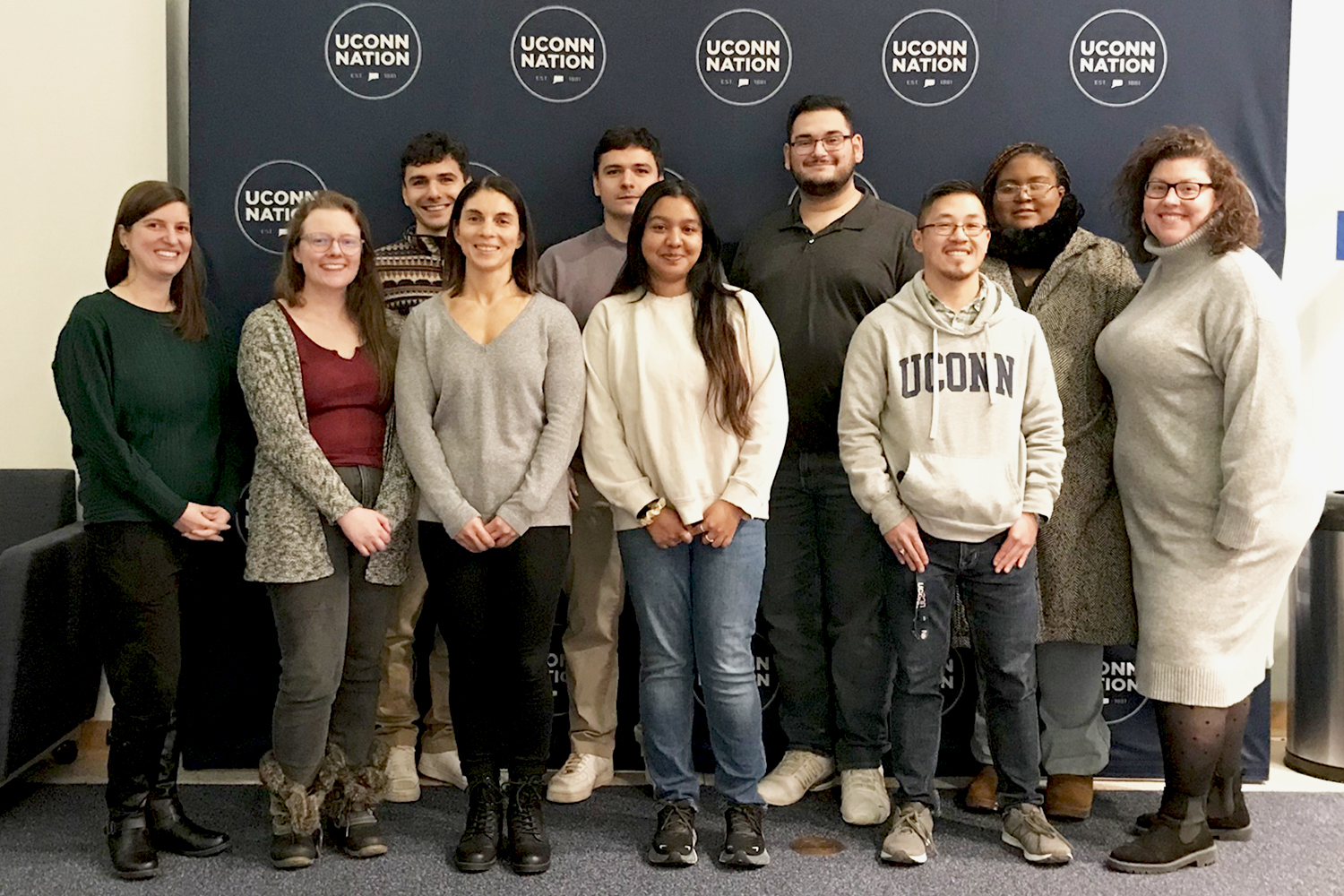Thanks to the hard work and dedication of a group of graduate students at UConn’s Neag School of Education, the School’s first academic journal has published its inaugural issue.
“It is with great pleasure we present the inaugural edition of the Neag School of Education Journal,” reads a letter from the journal’s board members in the Spring 2023 issue. “This project, imagined and operationalized entirely by students, has been in the works for close to two years, beginning with our conversations during the pandemic as we searched to create a place to gain experience in research and editing, as well as foster connection with others in graduate school whilst enduring remote learning. We are so excited and proud to share it with the larger educational community. Congratulations to our authors and happy reading!”
The Neag School of Education Journal is an editor-reviewed, open-access, annual journal. Founded and run by graduate students and published online through the Neag School, its primary purpose is to offer a platform for graduate students to share their research and knowledge with academic communities, and to broaden and deepen the literature of education as written and experienced by graduate students, as well as early-career scholars. Five doctoral students from the Neag School make up the journal’s founding board, and four additional graduate students serve as editors.
“Being part of the journal’s team is a privilege for all of us,” says Luis Ferreira, a founding member who is pursuing his doctorate in educational psychology at the Neag School. “We built the journal from scratch and had the opportunity of debating every single step of its construction to make our dream come true. It is amazing to see how people in our community are supportive of our dream.”
The journal places significance on pieces that seek to “improve education and social systems in order to facilitate increasingly effective, equitable, and socially just practices for educators and practitioners from a variety of fields, perspectives, and theoretical lenses as they serve their local communities.” The journal solicited submissions of a variety of manuscript types — from qualitative and quantitative research articles to essays, literature reviews, and personal experience and reflection pieces.
The five articles accepted and published in the Spring 2023 issue are:
- “Disputes of Assessment and Evaluation: An Analysis of Connecticut Due Process Hearings from 2020-2022″ – an analysis and overview of the legal requirements for special education assessment and evaluation in Connecticut.
- “Game-Based Ethical Instruction in Undergraduate Engineering” – an examination of game-based learning approaches to engineering ethics in first-year undergraduate students evaluated through the Engineering Ethical Reasoning Instrument (EERI).
- “Initial Development and Validation of the Student Self-Determination Opportunity Survey: Teacher Report (SSOS-TR) Version” – an analysis of the item development and content validation processes utilized in developing the Student Self–Determination Opportunity Survey: Teacher Report version (SSOS–TR).
- “Mind The Gap: Can Podcasts Help Bridge the Divide Between Education Research and Classroom Practice?” – a persuasive essay examining the reasons for the significant and consequential divide between educational researchers and education practitioners, through the lenses of attitudes, access, and audience, and arguing in favor of a podcast designed for an audience of teachers.
- “Stones from Another Mountain: A Critical-Cultural Comparison of Chinese and U.S. High-Impact Learning Practices” – a study investigating the cross-cultural relevance of the Association of American Colleges and Universities 11 high-impact practices for undergraduate learning, which have been widely adopted in the U.S., at 18 Chinese universities.
In addition to providing graduate students and early-career scholars an opportunity to share their work more widely, the editors say the journal fosters collaboration among students and their colleagues. Making the journal open access was also important, ensuring that its content can serve as an available source of information for current and future practitioners, say the editors.
“The inaugural issue of the journal was a special undertaking, which involved creativity, collaboration, and critical thinking – skills we have all learned as students of the Neag School,” says Emily Winter ’22 Ph.D., a founding member of the journal who earned her doctorate in school psychology at the Neag School. “Graduate students supporting and uplifting graduate student work was an incredibly rewarding experience that I look forward to seeing the journal continue to do in years to come.”
“The journal serves not simply as a platform to elevate the good work of graduate students, but also as a means to demystify and add transparency and support to an often daunting and opaque review and publishing process,” says Jennie Weiner, associate professor of educational leadership at the Neag School, who serves as the journal’s faculty advisor. “My hope is that everyone involved feels empowered and ready to engage in the larger field in ways that help to make it better.”
The journal will begin accepting manuscripts for its second issue later this year. Details will be shared on the journal’s webpage, which will also include a submission form when the submission window reopens. Manuscripts must be one of four types: research articles, essays, literature reviews, or personal reflections. Of course, the manuscript must deal with a topic of interest to those in the field of education.
“For this inaugural issue we have many people to thank,” the letter from the board members says. “To Dr. Jennie Weiner, thank you for your unwavering support and commitment to us and your graduate students. … To the dean of the [Neag School], Dr. Jason Irizarry, we are forever grateful for your enthusiasm and passion for our work. … To the editors, thank you for your time and dedication to providing feedback to our submissions, we appreciate your thoughtfulness and willingness to learn. To the individuals who submitted to our inaugural journal, thank you for your interest. We look forward to continuing to uplift graduate students’ work in years to come. To the board, thank you for the camaraderie, the passion and grit, and for being wonderful friends.”
To learn more about the Neag School of Education Journal, visit education.uconn.edu/neag-journal and follow the conversation on the Neag School’s Instagram, Facebook, Twitter, and LinkedIn accounts via the hashtag #NeagJournal.




